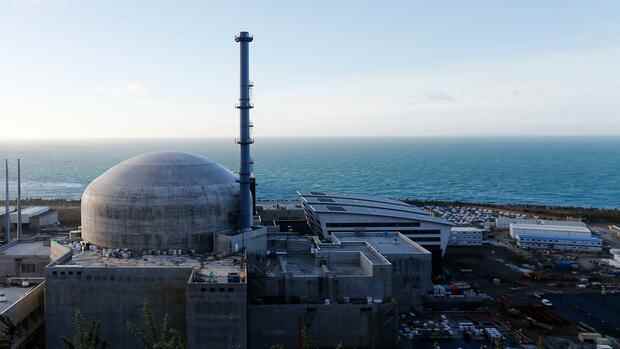There has recently been massive criticism of the plans of the EU Commissions.
(Photo: dpa)
Brussels Investments in new gas and nuclear power plants are to be considered climate-friendly in the European Union under certain conditions. Despite massive criticism, the European Commission adopted a corresponding legal act on Wednesday. It even falls short of an original draft and relaxes the requirements for gas-fired power plants. Germany in particular had insisted on making the criteria for gas more flexible.
The background to the classification of certain gas and nuclear projects as sustainable is the so-called taxonomy of the EU. It aims to encourage citizens and investors to invest in climate-friendly technologies in order to achieve the EU’s climate targets.
The now adopted legal act stipulates that investments in new gas-fired power plants will be considered sustainable until 2030 if, among other things, they replace dirtier power plants and are completely operated with more climate-friendly gases such as hydrogen by 2035.
In the original draft, the admixture of climate-friendly gases was already prescribed from 2026. This means that gas-fired power plants may now be able to use higher levels of polluting natural gas for longer. New nuclear power plants are to be classified as sustainable by 2045 if there is a concrete plan for the disposal of radioactive waste from 2050 at the latest.
Top jobs of the day
Find the best jobs now and
be notified by email.
The Commission’s plans were heavily criticized in advance. Austria and Luxembourg have announced that they will take legal action. Spain, Denmark, the Netherlands and Sweden also reject a sustainable classification of gas, it said in a letter to the Commission earlier this week. MEPs, environmentalists and scientists have repeatedly pointed out the climate-damaging CO2 emissions from gas and the unresolved issue of radioactive waste from nuclear power. Large investors such as the European Investment Bank and the IIGCC investor group were also critical.
After the Commission has officially accepted the proposal, it can only be rejected by a majority in the EU Parliament or at least 20 EU countries, otherwise it will automatically come into force. A refusal has so far been considered unlikely.
More: Solar system on the roof: when is it worthwhile for homeowners?
